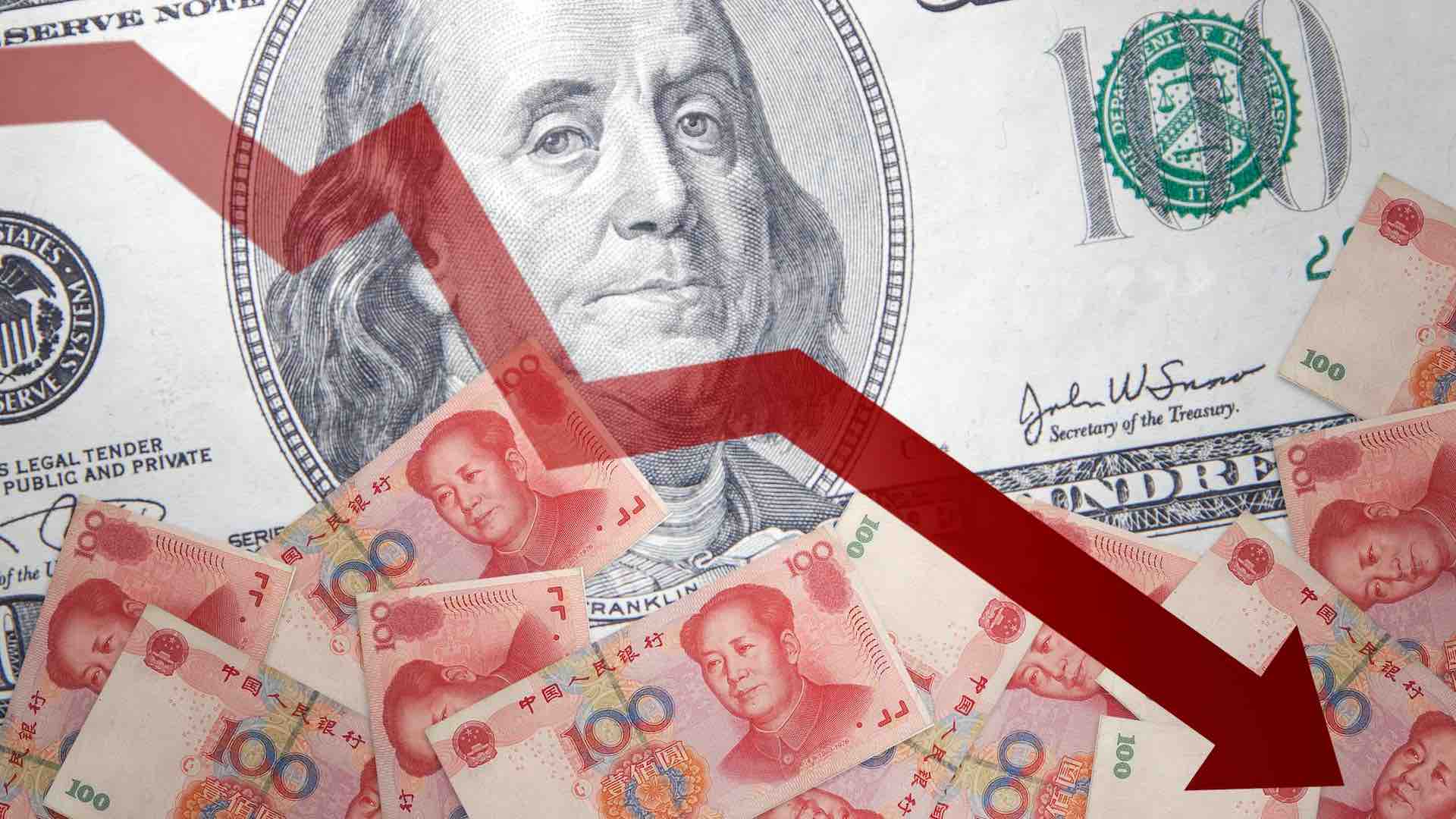The yuan has hit new record lows against the surging US dollar, with the internationally-traded yuan reaching its lowest point since 2011 and China’s domestic currency hitting its weakest level since the 2008 global financial crisis. This depreciation comes as the dollar continues to rise against other major currencies due to the US central bank’s recent interest rate hike. Asian stock markets, such as Hong Kong’s Hang Seng, Japan’s Nikkei, and South Korea’s Kospi, have also experienced sharp declines.

The strong dollar has driven many investors to consider it a safe haven during times of economic instability. This has caused the dollar’s value to increase against other currencies, such as the British pound, which reached an all-time low against the dollar earlier this week. Additionally, the dollar has hit a 20-year high against a group of leading global currencies. The yuan’s decline exemplifies the effect of the strong dollar on global currencies, as well as the contrasting economic strategies employed by China and the United States.
The People’s Bank of China (PBOC) has been lowering interest rates to stimulate economic growth following Covid-related lockdowns, while the US Federal Reserve is aggressively raising rates to control inflation. Joseph Capurso, head of international and sustainable economics at the Commonwealth Bank of Australia, explains that a weaker yuan can benefit Chinese exporters by making their goods more affordable and increasing demand. However, he notes that exports account for only 20% of China’s economy, and a weak yuan may not fully address domestic economic issues, such as the zero-Covid strategy and property crisis.
A weaker yuan may also lead to investor withdrawal and financial market uncertainty, which Chinese officials will want to avoid ahead of the upcoming Communist Party Congress. The yuan’s depreciation has affected other regional currencies, such as the Australian and Singapore dollars and the South Korean won. Asia’s emerging markets, which are increasingly dependent on the yuan due to their export relationships with China, are also vulnerable. Despite the strong dollar’s impact on global markets, it is not expected to deter the Fed from continuing to raise interest rates.
